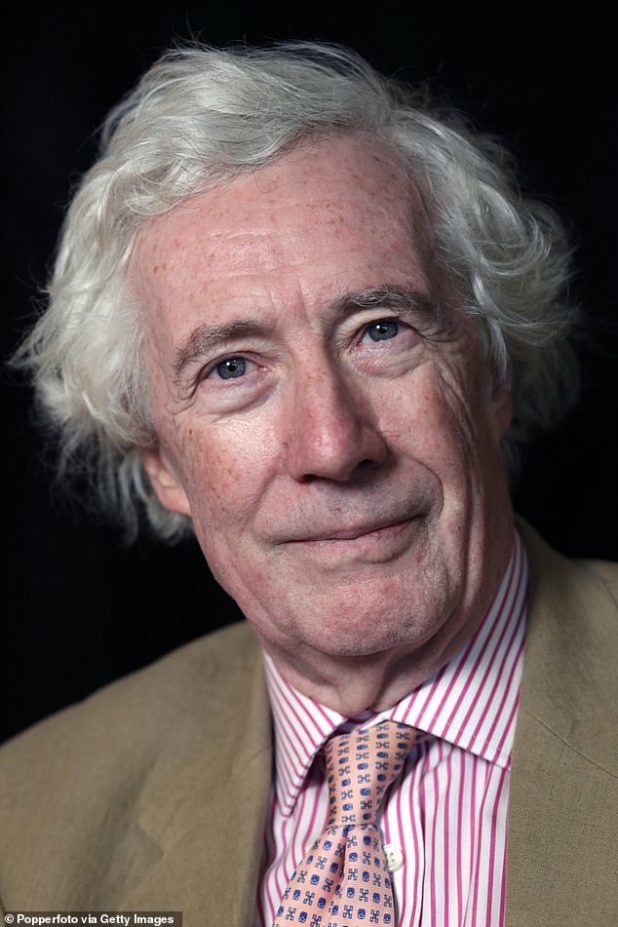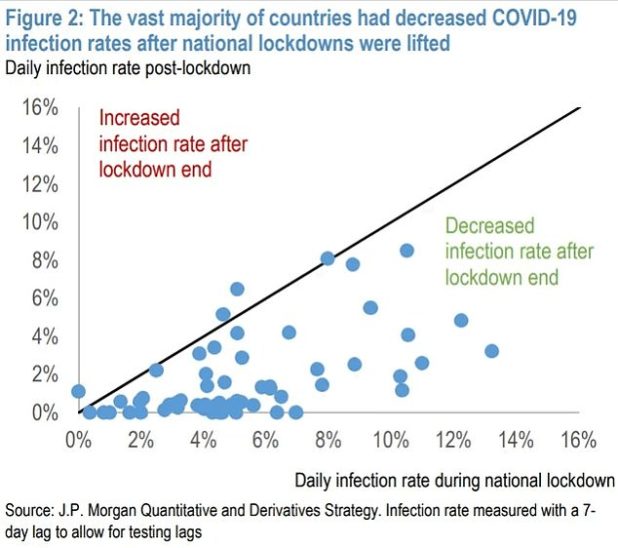Lord Jonathan Sumption
The internet is being greatly censored, but all of the leaks of real information about this virus situation have been plugged. Respected old people are still out there dropping red pills.
Ex-Supreme Court judge Lord Jonathan Sumption on Monday wrote a fantastic op-ed, published in The Telegraph, calling out the various levels of this massive scam.
From the piece, entitled, “The virus has taken our liberty. Must it take our humanity as well?”:
All our current debates about lockdowns, social distancing and masks ultimately end up with one uncomfortable dilemma. Do we get on with our lives and put up with Covid-19? Or do we try to hide away from the risk of infection in the hope that one day it will go away?
Let us remind ourselves of how we got here. The Government was panicked into imposing a lockdown in March by Professor Neil Ferguson’s Imperial College modelling report. The report is notorious for predicting a “reasonable worst-case scenario” of 510,000 deaths. But it made another important point which is often overlooked. A lockdown would only save a significant number of lives if it was kept in place indefinitely, until there was a vaccine, “which could be 18 months or more”. Otherwise, the virus would simply rebound, probably worse than ever, after it was lifted.
Professor Ferguson’s team had previously put the point like this. Aggressive isolation policies “merely push all transmission to the period after they are lifted, giving a delay but no substantial reduction in either peak incidence or overall attack rate”. The current spikes in countries that have lifted lockdowns, such as Spain, Germany, Japan and Hong Kong, bear this out. Some of them had longer and stricter lockdowns than we did.
It follows that, as far as the lockdown was concerned, there were only ever three coherent options. Option one was to have no lockdown. Option two was to have an indefinite lockdown, putting our whole national life into cold storage for the duration at unimaginable cost. Option three, which the Government chose, was to have a lockdown for long enough to allow the intensive care capacity of the NHS to catch up. In the event it caught up within a month.
The Government lifted the lockdown in June, six to eight weeks after it had lost any justification even by its own logic. But let us declare a truce on whether it was imposed too early or lifted too late. The question now is what happens next.
The Government’s position appears to be that the famous R-number can be kept below 1 without a lockdown but with social distancing. Some epidemiologists agree with this. Others do not. I do not propose to venture into those murky waters. But assuming that the Government is right, there are some awkward issues to be confronted.
One is that if the R-number can be kept below 1 with social distancing alone, then we could have done it in March instead of locking down. This is not hindsight. It is what Sweden did. It is fashionable to rubbish the Swedish approach. But their deaths per million of population are substantially lower than ours. Their hospitals were never overwhelmed. They never closed their schools. The predicted damage to their economy is about half of ours.
The most awkward question, however, is about the exit route. Assuming that social distancing can keep transmission of the disease low, it has to be kept in place indefinitely until there is a vaccine. What does this mean for our world?
Physical proximity to other people is not some sort of optional extra which can be ironed out of our culture. It is fundamental to our humanity. Conversation round a table, friendship, love and tears, children at play, most educational activity, depend on physical proximity. Our whole transport infrastructure, the buildings in which we work, play and eat out, depend on our being close together. With social distancing, physical cooperation becomes impossible. The social dimension of work all but disappears. The House of Commons, a great national forum in the crowded chamber, is reduced to a poor phone-in programme in a half-empty space. With social distancing there is no crowd around the bar, no singing at weddings, no orchestras or choirs, no theatre, no sport, no live audiences – in short, no collective activities, only the dismal solitude of the electronic screen. We have surrendered our liberty to the virus. Are we to surrender our humanity as well?
Masks, by comparison, are a minor issue. They are uncomfortable and depersonalising. They conflict with a basic instinct of Western society to interact visually, showing our faces. But if they encourage people to come out and live together again or to send their children to school, that can only be good. People will soon tire of them.
The brutal reality is the same, masks or no masks. We are going to have to live with Covid-19 whether we like it or not, unless and until there is an effective vaccine. And not just with Covid-19.
Shocking? Perhaps. But only because in Europe we have had a false sense of security for so long. In the last two decades there have been Mers and Sars. Before that there were Asian flu, Hong Kong flu, H1N1, and non-respiratory epidemic diseases like HIV, Ebola and Zika. All of them had higher case mortality than Covid-19. But, apart from HIV, they barely touched Europe.
This seems likely to change. International movement of people and other organisms is increasing. A major UK pandemic has been top of the National Risk Register since it was first published in 2008. It estimates that a new strain of flu could cause between 50,000 and 750,000 additional deaths in the UK and that emerging diseases, usually originating in animals, are a growing threat whose impact is unpredictable but may be very high.
Covid-19 is a serious disease, but historically it is at the bottom end of the scale. For any one under 50 the risk of death is tiny, less than for seasonal flu. In the great majority of cases the symptoms are mild or non-existent. Our ancestors lived with far worse epidemic diseases without rushing to put their heads in a bag. In other parts of the world they still do (world-wide, tuberculosis kills many more than Covid-19).
We all need to make our own personal risk assessments in the light of our age and state of health and the sort of activities in which we engage. For some people, social distancing will remain a sensible precaution. The rest of us should respect their choice but drop it and get on with our lives. We cannot keep running away.
Lots of great points there. It’s almost Elon Musk tier.
“Lockdown until there is a vaccine” implies that the vaccination will be mandatory for everyone and not just for the vulnerable groups (very old and sick people), otherwise why force everyone to comply with the lockdown?
Further, the lockdown appears to be completely useless in stopping the spread, and infections have actually decreased in most places that lifted the lockdown.
The few examples of places with a “spike” in cases after lifting the lockdown may be manifestations of differences in population age, health, and lockdown implementation details.
The lockdown and social distancing mandates start to make more sense once you assume that the goal was never to keep people safe from viruses, but to dramatically transform society in a very short period of time with the least amount of resistance by the population.
Nothing the government has done since March makes sense otherwise.
It’s a true shame that cooler heads have not prevailed.


